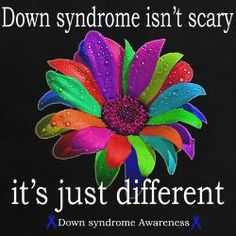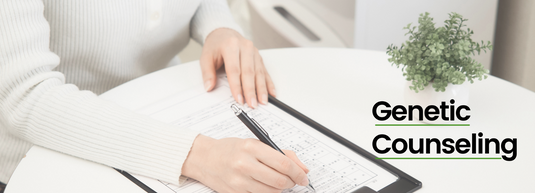The tale of an extra chromosome “Down’s Syndrome”
Mar 21, 2017
28449 Views
Hmm..Perhaps there’s something different about their eyes?
These children have a rare genetic condition called “Down’s Syndrome”
Did you know that “Currently, the incidence of Down syndrome is 1:800, which means approximately 32,000 babies with Down syndrome are born every year (the birth rate of India is 25.6 million births). That is more than six times the average total births of children with Down syndrome in USA (less than 5,000)” !
Are we all aware?
Most definitely not! We still see individuals asking the queries above assuming that there is something wrong with the features of the newborn. You should know that these very structural changes, are one of the basic identification markers for kids suffering from this Mendelian Disorder.
Here are some common features that could be helpful –

- Flat facial features, with a small nose
- Upward slant to the eyes
- Small skin folds on the inner corner of the eyes
- Small, abnormally shaped ears
- Fifth finger has only one flexion furrow instead of two
- Enlarged tongue that tends to stick out
Why are Down’s syndrome patients called Mongoloid?
Before “Down’s Syndrome” was called such, people with Down’s syndrome were called “Mongolian idiots” and the syndrome itself was called “mongolism”. This came from the fact that people thought that Down’s syndrome individuals resembled Mongolians. It is currently considered extremely inappropriate to use the term ‘Mongoloid’ to describe an individual with Down Syndrome.
What is Down’s Syndrome? How did it come to be…
Down syndrome (DS or DNS), also known as trisomy 21, is a genetic disorder caused by the presence of all or part of a third copy of chromosome 21. It is typically associated with physical growth delays, characteristic facial features and low intellectual ability. The average IQ of a young adult with Down syndrome is similar to that of a child.
MYTH: Adults with Down syndrome are the same as children affected by it.
TRUTH: Adults with Down syndrome are not children, and should not be considered or treated the same. They enjoy activities and companionship with other adults, and have similar needs and feelings as their typical peers.
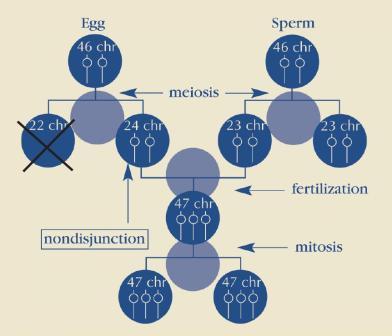
TRISOMY 21 (NONDISJUNCTION) CELL DIVISION
Important fact: Sometimes an error occurs when the 46 chromosomes are being divided in half. An egg or sperm cell keeps both copies of the No. 21 chromosome instead of just one copy. If this egg or sperm is fertilized, then the baby will have 3 copies of the No. 21 chromosome. This is trisomy 21, or Down syndrome.
The parents of the affected individual could be genetically normal. The extra chromosome may occur unexpectedly . The possibility increases from less than 0.1% in 20-year-old mothers to 3% in those age 45. There is no known behavioral activity or environmental factor that changes the possibility.
Did you know: The label “Down syndrome” is not meant to describe those with the condition as being “down” or delayed. Rather, like many medical conditions, it is named after a physician who described the condition. In the 1860’s, Dr. John Langdon Down published a paper describing a certain subset of his patients at the Royal Earlswood Asylum for Idiots (as mental retardation was appallingly referred to at that time). The editor selected “Down’s syndrome” and the World Health Organization confirmed that description for the condition in 1965. And, that is how “mongolian idiocy” became known as “Down syndrome.”
Is Down’s syndrome related to other disorders as well?
As many as 50% of the children with Down syndrome are also born with heart defects. Some of these heart defects are major, and the child may experience heart failure shortly after birth. For this reason, all infants with Down syndrome should have an echocardiogram within the first few months of life to check for heart problems.
People with Down syndrome are also known to have more hormonal problems in comparison to the general population. About 10% of babies born with Down syndrome and as many as 50% of adults with Down syndrome have thyroid related disorders. Examples : hypothyroidism.
More than half the children born with Down syndrome also have visual problems such as crossed eyes, myopia, hypermetropia and cataracts. Hearing impairment is also quite common.
Approximately 10%-12% of babies born with Down syndrome also have abnormalities in the gastrointestinal tract that require surgery for correction.
Approximately 25% of adults age 35 and above with Down syndrome also show signs of Alzheimer’s disease. In the general population, Alzheimer’s disease usually does not develop before age 50!
Could one get tested for Down’s Syndrome?
Down syndrome can be identified during pregnancy by prenatal screening followed by diagnostic testing or after birth by direct observation and genetic testing.Since the introduction of screening, pregnancies with the diagnosis are picked up at a high rate. Regular screening for health problems common in Down syndrome is recommended throughout a person’s life.
Check points …..
Before marriage: One could check their family history , study birth and growth patterns of the next generation coming up. Basically, be aware.
Before conception: Your partner comes from a different family. You both combine your gene pool together to create new life. Both could tested (for Down’s and carried screening) to gauge and be prepared for any future health risks.
Prenatal: The last point where the test could be useful. Physicians suggest Non invasive prenatal testing (NIPT), a simple blood screening that analyzes DNA (it’s called cell-free DNA, cfDNA) to assess a baby’s risk for a number of genetic disorders including Down syndrome. The results can help you and your doctor decide next steps, including whether invasive diagnostic tests — which are even more precise but slightly increase the chance of miscarriage — are worth the risk. The table below shows the age vs Frequency of Live Births of Babies with Down Syndrome to Normal Births.
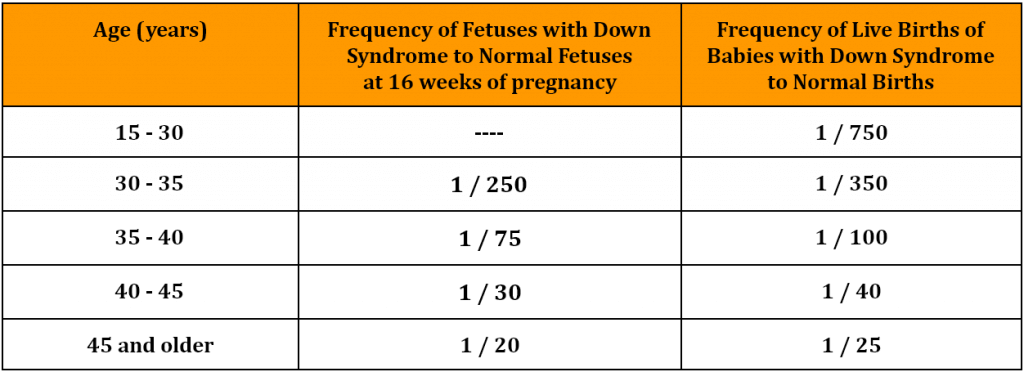
At Birth: Down syndrome is usually identified at birth by the presence of certain physical traits: low muscle tone, a single deep crease across the palm of the hand, a slightly flattened facial profile and an upward slant to the eyes. A chromosomal analysis, namely karyotyping is done to confirm the diagnosis. FISH is another genetic test that could confirm the diagnosis in a shorter amount of time.
Can Down’s Syndrome be inherited? What are the chances of having a second child acquiring it?
All 3 types of Down syndrome are genetic conditions, but only 1% of them are known to be hereditary. However, in one third of cases of Down syndrome resulting from translocation there is a hereditary component – accounting for about 1% of all cases of Down syndrome.
The age of the mother does not seem to be linked to the risk of translocation. Most cases are sporadic – chance – events. However, in about one third of cases, one parent is a carrier of a translocated chromosome.

Once a woman has given birth to a baby with trisomy 21 (nondisjunction) or translocation, it is estimated that her chances of having another baby with trisomy 21 is 1 in 100 up until age 40.
The risk of recurrence of translocation is about 3% if the father is the carrier and 10-15% if the mother is the carrier. Genetic counseling can help with the determination of origin of translocation.
How useful is Genetic Counseling in Down’s cases?
Genetic Counseling provides valuable insight and allows one guided access to the understanding of this complicated disorder. One can learn to study and relate their family history, assess a couple’s risk for trisomy 21, communicate with their partner under an expert’s supervision.
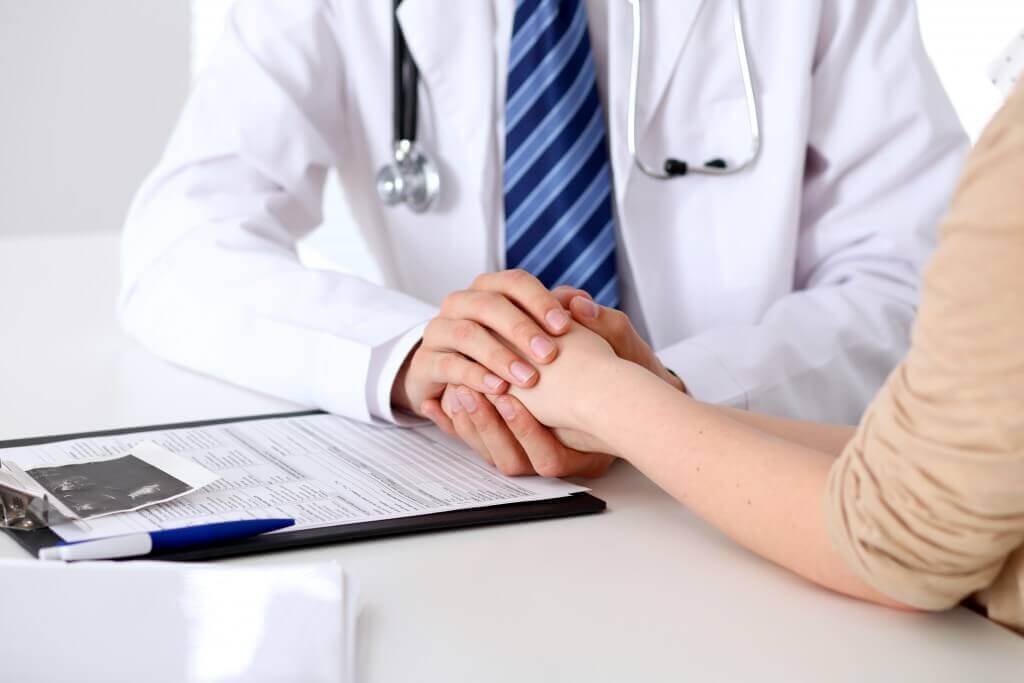
While for some, having a baby with Down Syndrome may not be perceived as daunting, for many, even the possibility of having a child with Down Syndrome can be fraught with extreme anxiety. Many such couples find it helpful to test and be prepared or seek help where it’s possible and available. Genetic Counseling can prove to be extremely useful in knowing the available testing options, at what age is it appropriate to explore these options, whether it would be just for one person or the couple, assistance with technical reports and support in every situation. Informed decision-making is crucial during reproductive planning, and genetic counseling could prove to very helpful at this stage.
According to our Director of Genetic Counseling, Ms. Ramchandran, “People who are different from the majority, those with disabilities including those who have Down Syndrome are more than just persons with special needs or assistance. They represent a minority that needs to be heard, understood and treated with equality. Genetic Counselors, especially in India, have earned a bad rep as torch bearers for the “prevention” of genetic “disorders” including Down Syndrome. While this may well be the choice for many people, we must be conscientious about providing balanced, unbiased information so that parents-to-be can make decisions based on their own values, beliefs and morals as opposed to our own, that we subconsciously impose on our patients. Genetic Counseling training is extremely important and must focus on the primary role of a genetic counselor as being a patient advocate- to play a role in facilitating informed and unbiased decision making, access to health care, early intervention, outreach, and awareness.”
Dr. Risha Nahar (Principal Genetic Counselor), points out another important aspect of genetic counseling for Down’s syndrome; Making the appropriate referrals for speech therapy, occupational therapy and physiotherapy (as required), giving recommendations on weight management, discussion of the elevated risk for gluten intolerance and routine medical surveillance for thyroid hormone disorder and cardiac conditions. A lot of the times, parents find relief in talking to other parents with similarly affected children of different age groups, hence Dr. Risha Nahar believes in sharing contact information of specific national and international parent support groups and patient advocacy groups with the family during the genetic counseling session.
The need for understanding and awareness in society…
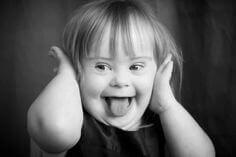
Today, advances in medical technology have definitely helped individuals with Down syndrome have increased their lifespan. We now have patients, age 60 that are being able to battle this condition, when once kids would not survive post 9 years. Where we are lagging is the social acceptance, our competitive and sometimes judgemental environment is still not welcoming enough! Yes, these kids are different, they have physical deformities, they may not understand social norms and could possibly behave badly – but they are suffering. One needs to be constantly aware of the fact that routine public interaction may not come as easily to them as it does to us. They do not demand but deserve more help, extra support, understanding and consideration. One of the main reasons behind spreading the awareness of this disorder is to inform and remind the general population of the constant struggle these patients have.
Down syndrome individuals should become more integrated into society and community organizations, such as school, health care systems, work forces, and social and recreational activities. The do possess varying degrees of cognitive delays, from very mild to severe, but that should not affect their acceptance in our society. We should advocate for their rights, wellbeing and inclusion in our community.
Mapmygenome for this Syndrome …
We are an Indian personalised genomics company with the vision of “Touching 100 million lives and saving a million lives by 2030.” A molecular diagnostics company for people who are proactive about their health. By combining their genetic profile and health history with genetic counseling, we provides actionable steps for individuals and their physicians towards a healthier life.
This Down’s Syndrome Day we aim to create awareness about this genetic condition and offer our services (genetic counseling, genetic screening and diagnostic testing) to promote informed reproductive decision making and to provide an opportunity as well as a safe place to explore personalized health options based on genetic tests.
